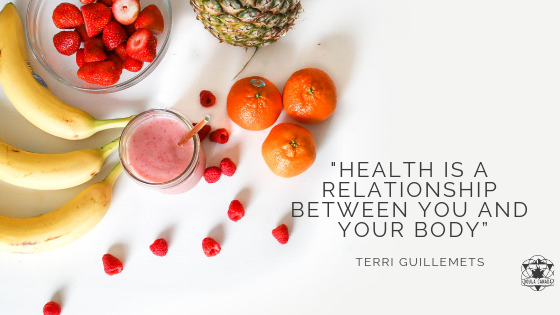[vc_row][vc_column][vc_column_text css=”.vc_custom_1642695988103{margin-bottom: 0px !important;}”]If you’ve ever thought, “I don’t need a doula! I have a partner(s),” this post is for you!
Your partner is (or partners are) pretty amazing and doulas are so happy to have them on board, however, doulas bring different qualities and backgrounds to birth and postpartum preparation and space than partners do.
Let’s talk about how your partner(s) and doula complement one another and each fill a vital role.
The role of a doula and the role of your partner(s) during labor are vastly different but equally important.
Let me explain….
The Partner’s Role:
The role of your partner(s) (who is/are emotionally attached to you) in labor is a tremendous asset to you in many ways. Your partner(s) provide(s) comfort to you in a way that your doula (aka a new connection) is simply not capable of.
They know you intimately; your fears, your passions, your deep concerns, and your history. They can anticipate your reactions before you have even had them. They are the person/people you look to in life for support and they are likely the person/people you feel most comfortable being your real self with.
Your partner(s) can get your oxytocin flowing (it plays an important role in labour and chestfeeding). Your partner(s) can cuddle, kiss, or massage you in intimate ways that only you and your partner(s) can share.
This relationship in the birthing room and during postpartum is incredibly valuable, HOWEVER, it is not the doulas role.
The Doula’s Role:
The doula’s primary focus during your pregnancy and the postpartum period is education, followed by the support of the decisions you make. The doula is able to answer your questions and lead you to the resources you seek. Through learning about normal physiological birth and birth options, chestfeeding and postpartum concerns partners can feel confident in supporting their partners. But they also have the reassurance of knowing a perinatal professional will be there to guide them.
The doula can actually bring you closer to your partner. By making sure that your partner’s needs are met (food, drink, and reassurance), the birther and partner(s) can work more closely together. The doula allows for the partner(s) to participate at their own comfort level. The doula can fill in and allow the partner(s) to participate as they wish, without leaving the birther or postpartum person’s needs unmet.
The doula is trained to know what is “normal” and what is beyond the scope of normal. The doula’s experience (professional and sometimes personal) enables them to support you confidently. The doula creates a space where the birther and partner(s) are given the opportunity to ask questions and make informed choices.
When a doula attends a birth or supports you in the postpartum period, they bring with them the strength and wisdom of those they have served before you. Being the sole emotional and physical support for a labouring or postpartum person can be overwhelming for some partners. If we look at the birth and postpartum periods throughout history, we often see birthers surrounded by other experienced humans offering continuous support. Our shift in birth norms over the last century has made it uncommon to have multiple continuous support people. Partners provide an intimate and essential role that cannot be replaced, but a doula can come alongside to help and enhance the experience.
The doula is great at talking about the huge transition that is new parenthood. Especially for first-time parents, it can be so important to have someone to talk to about the big life and identity changes that happen when you bring a new baby into your family.
The Doula has a network and knows when offering resources and referrals are needed (from pelvic floor physical therapy, counselling support, or chestfeeding resources, to house cleaning services, or information on newborn jaundice, and so much more).
Your birth or postpartum team is not an either/or situation, and no doula would (or could!) ever take the place of your partner. Doulas and partners complement one another and come together to provide loving, compassionate, and judgment-free support along the journey to parenthood. It’s important to assemble your team carefully and think about the mix of personalities and support styles you want involved in your experience, making sure everyone is prepared to walk alongside you with their unique gifts and skills.[/vc_column_text][/vc_column][/vc_row]



 Erin is a Registered Holistic Nutritional Consultant (R.H.N.) based in Halifax, Nova Scotia. She works with women all across Canada to help them optimize their nutrition throughout their pregnancy and breastfeeding journey. As a mom to a very active 2.5 year old, and currently expecting her second baby in June 2019, Erin has a unique understanding of the needs of pregnant and breastfeeding women. Her focus is primarily on education and providing her clients with realistic suggestions that fit their lifestyle and dietary preferences. When she isn’t working with clients, Erin enjoys baking and spending time outside with her family.
Erin is a Registered Holistic Nutritional Consultant (R.H.N.) based in Halifax, Nova Scotia. She works with women all across Canada to help them optimize their nutrition throughout their pregnancy and breastfeeding journey. As a mom to a very active 2.5 year old, and currently expecting her second baby in June 2019, Erin has a unique understanding of the needs of pregnant and breastfeeding women. Her focus is primarily on education and providing her clients with realistic suggestions that fit their lifestyle and dietary preferences. When she isn’t working with clients, Erin enjoys baking and spending time outside with her family.